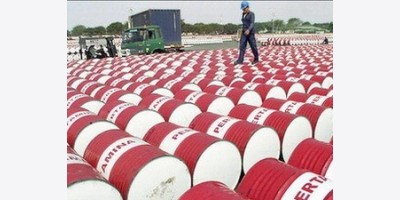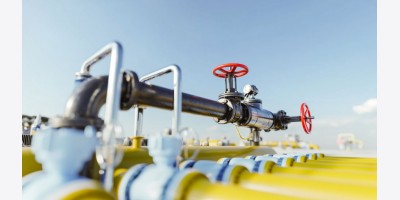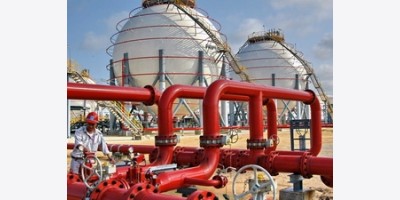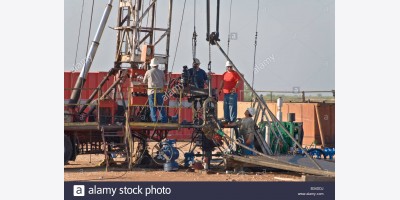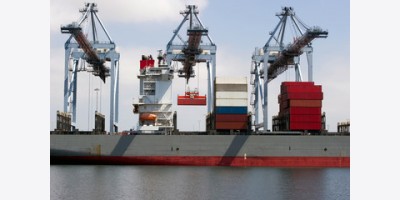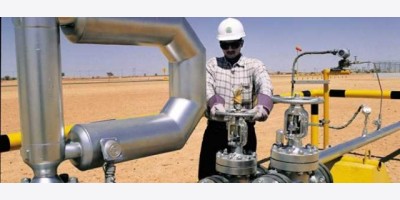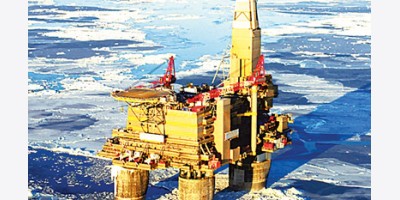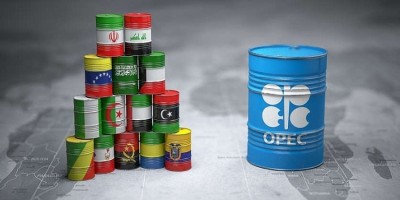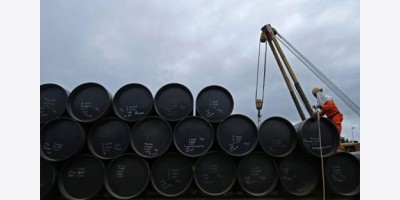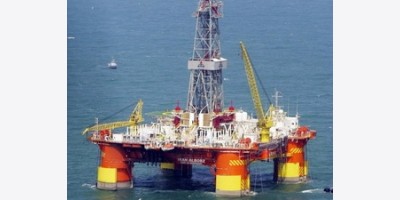Putin Pressured, U.S. Says Missile From Russia Downed Jet
By Volodymyr Verbyany and Denis Kazansky Jul 21, 2014 9:46 AM GMT+0700
“There’s a build-up of extraordinary circumstantial evidence,” Secretary of State John Kerry said yesterday on NBC’s “Meet the Press” program. “We picked up the imagery of this launch. We know the trajectory. We know where it came from. We know the timing.”
Putin confronts worldwide scorn just as the U.S. and its allies were trying to push him into a corner over the annexation of Crimea and his support for pro-Russian rebels in eastern Ukraine. The U.S. and Europe tightened sanctions last week, and U.K. Prime Minister David Cameron told Putin on a call yesterday that the attack was “totally unacceptable,” his office said in a statement.
“Russia risks becoming a pariah state if it does not behave properly,” U.K. Foreign Secretary Philip Hammond said yesterday in an interview on Sky News. “We now need to use the sense of outrage that is clear to get a further round of sanctions tightening against Russia.”
Cameron said earlier yesterday that he agreed with his French and German counterparts that Europe should be ready to impose further sanctions on Russia at a meeting July 22.
Ukraine Prime Minister Arseniy Yatsenyuk said in an interview with Frankfurter Allgemeine Sonntagszeitung that his armed forces had fired no missiles in the conflict, and that the people who used the system that hit the Malaysian airliner may have “come from Russia.”
U.S. President Barack Obama on July 18 decried what he termed Putin’s refusal to “de-escalate the situation.” While the Russian president has blamed the Ukrainian government, saying the crash wouldn’t have happened had it not fomented the conflict in the east, the administration in Kiev says it has proof that the plane was brought down by a Russian missile. The rebels deny shooting down the plane.
Separatists had at least three Russian-made surface-to-air missile systems, known by their NATO designation SA-11 Gadfly, Ukraine state security official Vitaliy Nayda said on July 19. As part of a cover-up of who fired the missile, three of the systems were transported back to Russia just hours after the plane was shot down, he said. Nayda displayed photos that he said showed them on the road to the Russian border.
The Gadfly, known locally as the Buk-M, is a radar-guided weapon that can locate a target at a range of 140 miles and reach altitudes as high as about 72,000 feet, according to the army-technology.com website.
The crash site at Grabovo, less than 60 miles from the Russian border, is providing a focal point for international outrage as armed rebels hover over the investigation, making the reclamation of wreckage and corpses more difficult.
With limbs and bodies still scattered around the area, governments around the world are clamoring to be given greater access to bring the remains home. Contradictory reports about the bodies, and eyewitness accounts of rebels and local miners sifting over the victims’ possessions, are also hampering an accurate inspection, said Michael Bociurkiw, spokesman for the Organization for Security and Cooperation in Europe.
Even Putin can’t control the armed rebels on the ground, said Ukraine’s Ambassador to Singapore, Pavlo Sultansky, who referred to the gunmen as terrorists.
“We are stuck,” he said today in an interview. “The crash site is under control of the terrorists. There are hundreds of them. They are well-armed and unmanageable. Even Putin has no power to command them to do this, do that. Generally, he’s manipulating these puppets. But on the ground, he has no control.”
The site is “being treated more like a garden clean-up than a forensic investigation,” Australian Prime Minister Tony Abbott said in an interview with Sydney-based 2GB radio.
Australia is seeking a United Nations resolution calling for investigators to be given unfettered access to the site, according to an official in Cameron’s office in London, who spoke on condition of anonymity. It will be voted on today.
International leaders consulted by Abbott are now “firmer and sterner” on the need for justice, he told journalists in Canberra.
“The rebels have an interest in hiding evidence and are probably under orders and possibly being helped by their Russian sponsors,” Joerg Forbrig, senior program officer for central and eastern Europe at the Berlin bureau of the German Marshall Fund of the U.S., said in a phone interview. “They want all incriminating evidence removed before international investigators are let in.”
At the site yesterday, Bociurkiw said he had heard that refrigerated trains would transport the corpses to an area controlled by the Kiev government. He didn’t know where.
Pro-Russian separatists were holding a train containing 192 bodies from the crash in Torez, in the Donetsk region, Ukraine’s government said yesterday in an e-mailed statement. The emergency ministry has recovered 251 bodies, according to the statement.
The self-proclaimed Donetsk People’s Republic has equipment from MH17 (MAS) that may be the flight recorders, the group’s prime minister, Alexander Borodai, said in a website statement yesterday. “We are waiting for experts to pass on the stuff,” he said.
The conflict in east Ukraine is raging on, even as the eyes of the world focus on the crash.
Insurgents shelled the downtown area of Luhansk yesterday and damaged a school, a hostel and other buildings, Vladyslav Seleznyov, a military spokesman, said in comments on Facebook. The insurgents are using Grad multiple rocket systems and mortars, he said.
Ukrainian troops are holding their positions near the airports of Luhansk and Donetsk -- both about 60 miles from the crash site -- and widened the area they have under their control, the Defense Ministry said in a statement on its website. Government troops repelled all the rebels’ attacks.
While the diplomatic pressure on Putin to disown the rebels and help end the conflict in eastern Ukraine is growing, building the political will in Europe to force him to do so may prove difficult. The European Union relies on Russia for about 30 percent of its gas, according to European Commission data, making some countries reluctant to act.
One group of countries, which runs in an arc from Estonia in the northeast through Austria and down to Greece in the southeast, gets more than 75 percent of its gas imports from Russia.
(An earlier version of this story was corrected because the Cameron call was described as taking place today, when it occurred yesterday.)
To contact the reporters on this story: Volodymyr Verbyany in Kiev at vverbyany1@bloomberg.net; Denis Kazansky in Kiev at dkazansky@bloomberg.net
To contact the editors responsible for this story: John Fraher at jfraher@bloomberg.net; Balazs Penz at bpenz@bloomberg.net Garfield Reynolds, Gregory Mott
In June this year, total US petroleum deliveries rose 1.5% from the same time last year to average just over 19 million bpd. For the second quarter, petroleum demand increased 1.5% compared to the same period last year.
John Felmy, API Chief Economist said, ‘a wide range of measures show continued strength in petroleum demand and domestic supply last month, with imports around 20 year lows. Increased US production in recent years has provided an almost barrel for barrel counterweight to various disruptions in global supply from overseas.’
Petroleum products
Demand for gasoline increased 4% from June last year to average 9.3 million bpd while distillate deliveries increased 3% to hit 3.8 million bpd. Jet fuel demand increased by 8.4% and demand fell for other oils by 5.5 and residual fuel 10.9%. Residual fuel deliveries were at the lowest level recorded for June.
Gasoline production set a new record for June and was also the second highest output level ever recorded in the USA. An increase of 7.6% from 2013 pumped gasoline production to 10.1 million bpd. Production of distillate fuel grew 2.5% from last year to set a new June record o 4.9 million bpd. Year to date production was also at record highs for both gasoline and distillate.
Imports
Total oil imports dropped by 5.7% from last year to average 9.2 million bpd in June, the lowest level for the month since 1993. Crude oil imports fell to their lowest level since 1994, sliding 2.6% from last year to 7.5 million bpd. Imports of refined products were down by 17.5% from the previous year to hit 1.7 million bpd, the lowest level since June 1995.
Refining and stocks
Refinery gross outputs were down 2.5% last month from the same time in 2013 at 15.9 million bpd. Exports of refined petroleum products rose 8.3% from last year, averaging 3.8 million bpd. Refinery capacity utilisation averaged 88.8% in June, down 0.9% from May and 2.9% from the same time last year.
Crude oil stocks gained 1.4% from June last year to hit 380.8 million bbls, the second highest inventory level for the month since 1990. Stocks of motor gasoline fell 4.4% from last year to 215.1 million bbls. Stocks of distillate, jet fuel and other oils were also down from levels hit in June 2013.
Adapted by Claira Lloyd
Published on 18/07/2014
The Obama administration will allow seismic testing off the US East Coast to update decades-old estimates of undiscovered technically recoverable oil and natural gas along the south- and mid-Atlantic coasts, the US Bureau of Ocean Energy Management said Friday. In a record of decision, BOEM said it will allow permitting for seismic tests in federal waters from the Delaware Bay to just south of Cape Canaveral, Florida. Acting BOEM Director Walter Cruickshank said the decision does not authorize offshore oil and gas drilling, adding that geologic and geophysical companies would need to obtain permits to conduct a seismic survey. “We have several permit applications on hand that we will be working on,” Cruickshank told reporters. These seismic surveys would update 40-year-old data on the East Coast’s offshore resources, which show that the Atlantic Outer Continental Shelf has 3.3 billion barrels of estimated recoverable oil, including 1.42 billion barrels in the Mid-Atlantic and 0.53 billion in the South Atlantic, well below what industry believes may be recoverable. The same data estimates there is 31.28 Tcf of gas in the Atlantic, including 9.87 Tcf in the North Atlantic, 19.36 Tcf in the Mid-Atlantic and 2.04 Tcf in the South Atlantic. The administration is considering including south and Mid-Atlantic drilling in its next federal offshore leasing plan, which will run from 2017 through 2022, but in a recent interview then-BOEM Director Tommy Beaudreau said the drilling decision will not hinge of how much oil seismic tests find may be recoverable. Cruickshank said Friday’s decision includes the “highest level of protection” for environmental and marine life and includes provisions to stop testing during migratory periods for sea turtles and right whales. But these protections were blasted both by industry for exceeding legal requirements and by environmentalists for allowing these tests at all. “We remain concerned by the lack of scientific support for certain requirements the administration wants to impose on seismic surveys in the Atlantic,” American Petroleum Institute Upstream Director Erik Milito said in a statement. “Operators already take great care to protect wildlife, and the best science and decades of experience prove that there is no danger to marine mammal populations,” he added. Jeff Vorberger, a vice president the National Ocean Industries Association, an offshore industry trade group, called the administration’s restrictions for these seismic tests “unnecessary hurdles lacking scientific justification.” “Permits should be issued swiftly while relying upon sound scientific evidence,” he said.
India’s refinery operators are keeping options open to secure more volumes of Canadian crude as part of its efforts to widen its import basket and take advantage of competitively priced heavy crude grades, industry sources said Friday. Naduhatty Selai Raman, chief research manager with Indian Oil Corp., said IOC is currently in negotiations with Canadian producers to import
feedstock crude for its refineries in the coastal areas of India that are capable of processing heavier grades of crude. “Our imports are increasing and pricing is a big aspect of any deal that we will make to procure crude,” he said on the sidelines of the India-Canada Energy Forum in Calgary. “We will be looking at a price margin of at least $5/barrel,” Raman said. IOC has already lifted one cargo of light crude oil from offshore Newfoundland and Labrador that was produced by Husky Energy. It has also signed a memorandum of understanding with the Alberta Petroleum Marketing Commission for crude offtake. Raman did not comment on whether IOC was looking at importing more cargoes from Husky. “Our refineries can process heavy crudes, and both the Cold Lake and Western Canadian Select will be suitable,” Raman said. Krishnamurthi Subramanyam, deputy general manager of refinery coordination with Hindustan Petroleum Corp., said Hindustan will also be open to lifting Canadian crude. “We import about 42 million barrels from Iraq each year, and the recent violence there has not as yet impacted our crude liftings,” he said on the sidelines of the event. “However, we will always be looking at opportunities elsewhere.” Anand Kumar, director of Petrotech, said a game-changer for Canadian crude exports will be the construction of pipelines from landlocked Alberta. “We are working on making a comprehensive regulatory submission this summer for the Energy East pipeline,” Paul Miller, executive vice president with TransCanada said at the event, adding that the 1.1 million b/d facility will potentially open up new channels of exports to India. Deepak Obhrai, parliamentary secretary to Canada’s Minister for Foreign Affairs, said the expectation is for energy security to be a “defining” element of Indo-Canadian relations. “Under [Canada’s] new global action plan, oil and gas has been identified as a priority sector, and we see ourselves playing a major role in meeting India’s demand to procure more crude from global sources,” he said at the event. India is the fourth-largest global consumer of oil, and in 2012 it imported 73% of its total demand.
While cautioning that investigators had yet to definitively determine the source and motive of the surface-to-air missile that downed a Malaysian Airlines plane, President Barack Obama said Friday he is prepared to issue more sanctions on Russia if it continues to escalate the conflict in Ukraine. “We will continue to make clear that as Russia engages in efforts that are supporting the separatists, that we have the capacity to increase the costs that we impose on them,” Obama said in a briefing with reporters. “And we will so do. Not because we are interested in hurting Russia, but because we believe in standing up for the basic sovereignty that needs to be respected.” Obama confirmed that US intelligence officials have determined that the Malaysian Airlines flight was downed on Thursday by a surface-to-air missile fired from Ukrainian territory controlled by Russian separatists. He called for an immediate cease-fire among Ukraine, the Russian separatists and Russia so that investigators can access the crash site. The plane, which was traveling at 33,000 feet when it was attacked, was carrying 280 passengers and 15 crew on board and was en route from Amsterdam to Kuala Lumpur. Obama called the incident “outrageous,” but he stopped short of blaming Russia for the attack, saying that more information is needed. “We’re beginning to draw some conclusions, given the nature of the shot that was fired,” he said. “There are only certain types of anti-aircraft missiles that can reach 33,000 feet. We have increasing confidence that it came from areas controlled by the separatists. Without having a definitive judgment on those issues yet, what we do know is that the violence that is taking place is facilitated in large part by Russian support.” Russia has denied any involvement in the downing of the plane. Obama added that the sanctions the US has imposed on Russia so far have been designed to surgically target the Russian economy, without spillover to the global economy. Sources have said that EU officials have urged the US to move judiciously on sanctions, due to Europe’s large reliance on Russian energy supplies and trade.
A planned Port Arthur, Texas, unit train terminal that will offload Western Canadian heavy crude will begin operations by late 2016 or early 2017, co-developer Kansas City Southern railroad said on Friday. Railroad officials would not project potential volumes or revenue from the project, but KCS and project co-developer Global Partners said earlier that the terminal will initially handle two unit trains a day and have the capacity to store 340,000 barrels of oil. The 200-acre facility, which Global will design, build and operate and KCS will lease, will contain a double loop track and be capable of handling trains of up to 120 cars, KCS officials said on an earnings conference call. The terminal likely will take shipments originating from Canadian Pacific and Canadian National railroads over multiple KCS gateways, Pat Ottensmeyer, KCS’ executive vice president of sales and marketing, said. It will also have waterfront access to the Gulf of Mexico for barge and vessel loading, he added. Ottensmeyer said demand among US refiners for Western Canadian heavy sour crudes is “substantial” and that between now and the terminal’s opening, Global “will be aggressively pursuing business opportunities in this market and will be using other KCS terminals and facilities in the area to handle this business.” US refiners have shown a preference recently for Western Canadian heavy sour crudes shipped by rail because of their low diluent content that ranges from close to zero up to 5%. Canadian heavy sour crude shipments by pipeline require up to 15% diluent in the summer months and up to 33% diluent in winter, which costs refiners more to separate and process. In addition, because the US has permitted re-exports of Canadian crudes, potential exporters of Canadian crudes prefer to export crudes received by rail because of the zero potential of commingling with US domestic crudes. The US permits the re-export of Canadian crudes from US locations provided it is not commingled or blended with domestic US.





